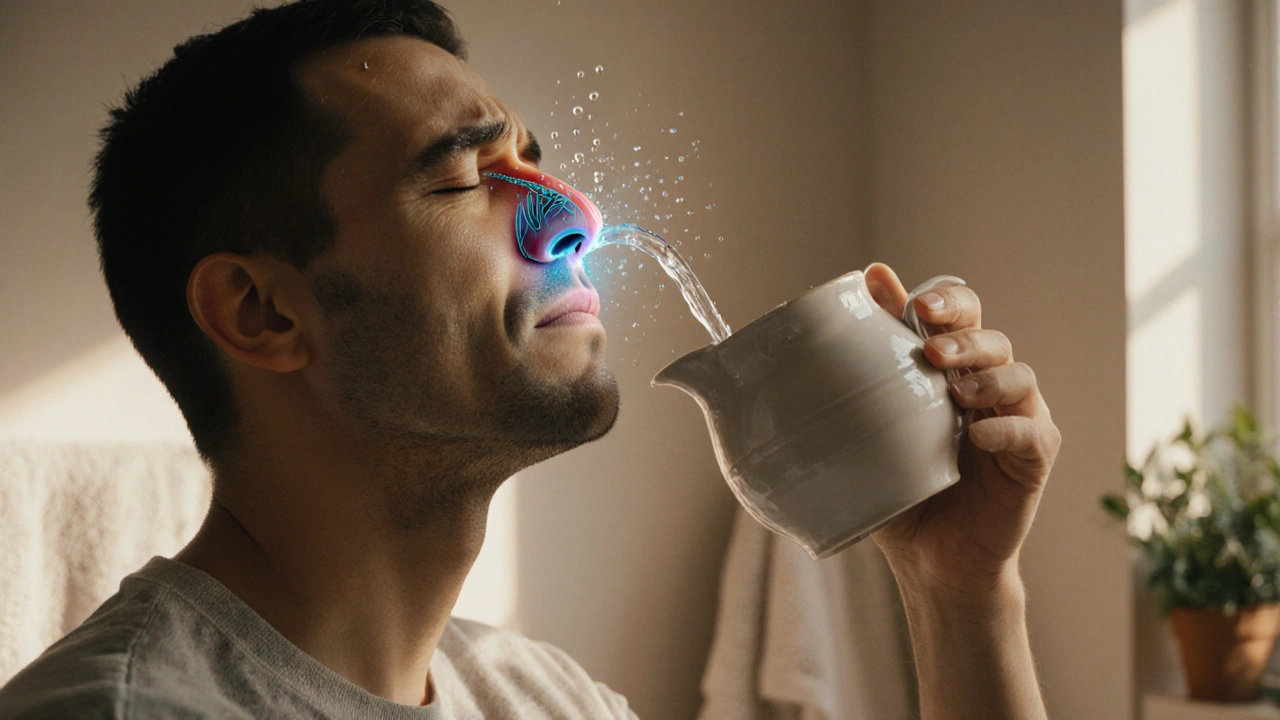Sinus Health: Easy Tips to Keep Your Nose Clear and Comfortable
If your nose feels stuffy, you’ve probably experienced a sinus flare‑up. Sinuses are air‑filled cavities behind your cheekbones and forehead that help warm and filter the air you breathe. When they get irritated by allergies, a cold, or dry air, they swell, produce extra mucus, and you end up with pressure, headache, or a runny nose.
Understanding Your Sinuses
Most people think sinuses are just a nuisance, but they actually play a key role in breathing and voice resonance. The four main groups—maxillary, frontal, ethmoid, and sphenoid—drain into the nasal passages. If the tiny openings (called ostia) become blocked, fluid builds up and creates an environment for germs to grow.
Typical signs of a sinus problem include:
- Facial pressure or pain, especially around the eyes or forehead
- Thick, yellow or green mucus
- Post‑nasal drip that triggers a cough
- Reduced sense of smell
- Headache that worsens when you lean forward
If these symptoms last more than 10 days or keep coming back, it’s a good idea to see a doctor. Persistent issues can point to chronic sinusitis, which may need prescription treatment.
Everyday Strategies to Keep Them Clear
Most sinus complaints can be eased with a few simple habits. Here are the most effective ones:
- Stay hydrated. Drinking water thins mucus, making it easier to clear. Aim for at least eight glasses a day, and add warm teas with ginger or peppermint for extra soothing.
- Use steam. A hot shower or a bowl of steaming water (cover your head with a towel) loosens thick mucus within minutes.
- Try a saline rinse. A neti pot or squeeze bottle with saline solution flushes out allergens and excess mucus. Use distilled or boiled‑then‑cooled water to avoid infection.
- Keep indoor air moist. A humidifier adds moisture to dry rooms, especially in winter. Clean it regularly to prevent mold growth.
- Watch allergens. If pollen or pet dander triggers your sinuses, keep windows closed on high pollen days, wash bedding weekly, and consider HEPA filters.
- Limit irritants. Smoke, strong perfumes, and chemical fumes can inflame sinuses. When possible, stay in smoke‑free zones and use fragrance‑free cleaning products.
- Over‑the‑counter help. Decongestant sprays (use no more than three days) or oral antihistamines can reduce swelling. Always read labels and follow dosage instructions.
- Mind your posture. Slouching can compress the sinus openings. Sitting up straight while reading or working on a computer helps drainage.
These steps are cheap, easy, and often enough to get rid of that clogged‑up feeling before it turns into a full‑blown infection.
When home care isn’t enough, a doctor might prescribe a nasal steroid spray, a short course of antibiotics (if bacterial), or recommend imaging to rule out structural problems.
Keeping your sinuses healthy is mostly about staying hydrated, clearing out mucus, and avoiding things that irritate the lining. Try a couple of the tips above next time you feel stuffy—you’ll likely notice a difference within a day.

Saline Nasal Irrigation: Fast Relief for Stuffy Nose & Watery Eyes
Discover how saline nasal irrigation eases congestion and red, watery eyes. Learn the science, best solutions, safe techniques, and practical tips for lasting comfort.